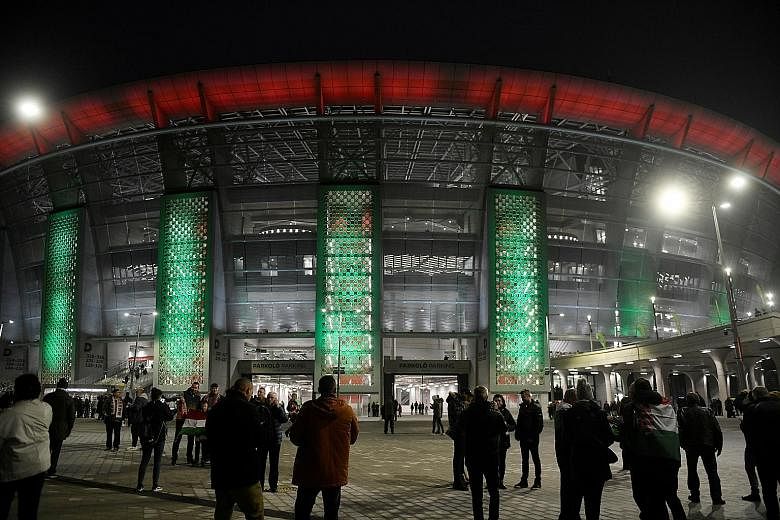PARIS • The 2020 European Championship will be the first to be played across the continent in 12 different countries, forcing teams and supporters to rack up thousands of air miles and leave behind a gigantic carbon footprint.
The new format of Euro 2020 may be innovative and organisers have promised to make the tournament environmentally friendly.
That promise seems to ring hollow when, for example, Polish supporters will have to travel over 6,000km in 10 days to watch their team's group games - to Dublin and Bilbao in Spain, before going back to Ireland again.
Matches will also be played by the Caspian Sea in Baku, nearly 5,000km from London, where the final will be held.
Contrast that with Euro 2016, when the tournament was held in France, and the next Euros in Germany in 2024. Both of those countries are compact enough to travel around easily by train.
"This is total nonsense from an environmental viewpoint," said Karima Delli, a French Green who chairs the European Parliament's Transport and Tourism Committee.
"They say this new format is about showcasing European unity, but they're forgetting that there is a climate emergency."
However, Uefa insists it has taken this "emergency" into account and is "taking steps to ensure Euro 2020 is our most environmentally conscious tournament".
The format for Euro 2020 will see several leading teams - England, Germany, Italy, Spain and the Netherlands - whose fans "are known to travel in their tens of thousands for major international tournaments", play their group games at home.
"This will significantly reduce the carbon footprint of the tournament," Uefa said.
European football's governing body calculated that travelling fans and teams will produce 425,000 tons of carbon emissions over the course of the competition.
In comparison, it says, Euro 2016 in France created 517,000 tons of emissions. The 2018 World Cup, held in 11 cities across Russia but with 32 teams instead of 24 at the Euro, produced almost 1.5 million tons of emissions, according to reports produced by organisers.
Meanwhile, Budapest's Puskas Arena will be the only brand new venue for the tournament. This, Uefa says, has spared "a huge environmental cost in energy, concrete and other resources".
In contrast, four new stadiums were built in France for Euro 2016.
Andrew Welfle, of the Tyndall Centre for Climate Change Research at the University of Manchester, admits that construction is "a major source of emissions".
That means there is a "huge difference" between the emissions clinked to Euro 2020 and, for example, the 2022 World Cup in Qatar, where all eight venues are either being built from scratch or modernised for the competition.
To make up for the carbon footprint, Uefa is pledging to invest in "emission reduction projects", and intends to plant 50,000 trees in each of the host countries.
But experts are not convinced.
"Planting trees is great, but planting trees and then leaving does not resolve the problem," says Welfle.
"That is not going to change the quantity of emissions produced."
AGENCE FRANCE-PRESSE

